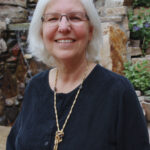
Intersectionality in Counseling: Key Concepts, Research, and Application
Intersectionality in Counseling: Key Concepts, Research, and Application
Information
Date & Time
-
-
Educational Goal
Participants will gain competency in the topic of intersectionality.
Description
As the counseling profession works toward more inclusivity, it has become clear that increased diversity is needed for counselors and clients. To this end, the development and study of Multicultural Counseling have become increasingly important. That study initially focused on a wide range of single cultures that were important to individuals, which is certainly important. But how do we work with an individual who presents with multiple cultural identities? It is now understood that a more complex model is needed: one that acknowledges that we each have primary identifications with multiple cultures and that these identifications commonly lead to relatively stable personal constructs called identities. Intersectionality, a concept allowing us to address multiple cultural and other identities, has begun to appear in counseling and psychology literature. This presentation will explore intersectionality and its applications in counseling research and clinical practice.
Target Audience
- Counselor
- Marriage & Family Therapist
- Social Worker
- Substance Use Disorder Professionals
Presenters

Lauren Young, Ph.D., LPC, ACS completed a master’s degree in speech communication from the University of Denver and a doctoral degree in clinical psychology from The Fielding Institute (now Fielding University). She has had a long career in the mental health field as a clinician, working with diverse clientele, including children, teens, families, and adults. She integrates traditional counseling approaches with those that are more experiential and creative. In addition, for many years, she has explored mind-body approaches to healing, including stress reduction, meditation, relaxation, nutrition, and other lifestyle factors. Most recently, she has added grief counseling. As a lifelong learner, educating others was always a priority. In 2005 she joined the University of Phoenix Social and Behavioral Sciences team in Denver as faculty and later joined the online team. She has since expanded her teaching to a local university. She continues to have a passion for supporting counseling students in integrating fundamental and newer academic perspectives as applied to counseling. Teaching and exploring multicultural and developmental counseling are major focuses.
Financially Sponsored By
- Arizona Counselors Association